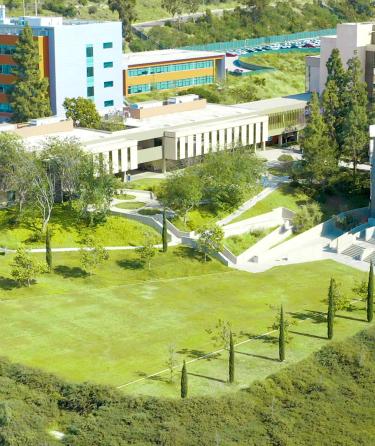Environmental Science
Programs Offered
- ASSOCIATE DEGREE FOR TRANSFER (AS-T): Major Code 0301.00
- DEGREE / CERTIFICATE REQUIREMENTS
NEW: Associate Degree for Transfer in Environmental Science
(60 units)
In 2012, the California Community Colleges and CSU launched the new Associate Degree for Transfer (AA-T/AS-T) Pathway. The Science Division now offers an Associate Degree for Transfer in Environmental Science. Upon successful completion, you are guaranteed admission to the CSU system as a junior.
To earn an AS-T in Environmental Science, students must meet the following requirements:
(1) Completion of 60 semester units that are eligible for transfer to the CSU, including the following:
- (A) 31 IGETC units or 33 CSU-GE units.
- (B) 35 semester units in the courses listed below
- (C) Electives up to 60 units
(2) Obtainment of a minimum grade point average of 2.0.
(3) Earn a C or better in all courses required for the major or area of emphasis.
Students will not be required to complete additional local graduation requirements to obtain the AA-T or AS-T degree.
REQUIRED COURSES (42 units)
CORE: Choose one of the following combinations of Biology and Chemistry courses:
• BIOLOGY 006 General Biology I (5 units) and BIOLOGY 007 General Biology II (5 units) and CHEM 101 General Chemistry I (5 units)
- or -
• BIOLOGY 006 General Biology I (5 units) and CHEM 101 General Chemistry I (5 units) and CHEM 102 General Chemistry II (5 units)
ADDITIONAL REQUIRED CLASSES
- ENV SCI 001 Introduction to Environmental Science (3 units)
- GEOLOGY 001 Physical Geology (3 units)
- GEOLOGY 006 Physical Geology Laboratory (1 unit)
- MATH 227 Statistics (4 units)
- MATH 261 Calculus I (5 units)
- ECON 001 Principles of Economics 1 (3 units)
- PHYSICS 006 General Physics I (4 units)
- PHYSICS 007 General Physics II (4 units)
Class Descriptions
ENVIRONMENTAL SCIENCE 1 is a 3-unit introduction to environmental issues from a scientific perspective, focusing on physical, chemical, and biological processes within the Earth system, the interaction between humans and these processes, and the role of science in finding sustainable solutions. Topics include ecological principles, biodiversity, climate change, sustainability, renewable and non-renewable energy, water resources, air and water pollution, and solid waste management.
TRANSFER: UC/CSU
PREREQUISITE: None
Student Learning Outcomes:
Upon successful completion of this course the student will be able to:
- Identify sources and effects of pollution and discuss practical ways of mitigating global climate changes.
- Explain how each of the following impact the environment: mining and mineral refining processes; extraction and burning of fossil fuels; industrial and agricultural activities; nuclear energy production procedures and nuclear wastes.
ENVIRONMENTAL SCIENCE 2 is a 3-unit course that fulfills a non-laboratory science requirement. This course discusses ecology and the effects of humans on their environment. Topics include ecological structure and function, population dynamics, use of natural resources, energy, pollution and man's impact on the survival of plant and animal species.
TEXTBOOK: Living in the Environment, Seventeenth Edition, 2012, by G. Tyler Miller & Scott E. Spoolman. Brooks/Cole, Cengage Learning
EXERCISE WORKBOOK: Methodology of Science Exercise (Available at the bookstore)
PREREQUISITE: None
ADVISORY: English 28 and Mathematics 105
TRANSFER: UC/CSU
Student Learning Outcomes:
Upon successful completion of this course you will be able to demonstrate a firm understanding of:
- Global population patterns and the relationships between population size and material standard of living.
- The principals of ecology, including facts and examples supporting them.
ENVIRONMENTAL SCIENCE 24 is a 3-unit course that focuses on climate change, an important and controversial topic. The course covers how the climate system operates today, records of Earth's ancient climate and environments, evidence for modern climate change, and potential impacts to environments and societies based on current predictions.
TRANSFER: UC/CSU
PREREQUISITE: None
Student Learning Outcomes:
Upon successful completion of this course the student will be able to:
- Describe Earth’s climate system, how it has changed over Earth’s history, and current prediction for future changes.
- Evaluate how changes to Earth’s climate have and will impact the environment and human societies.

